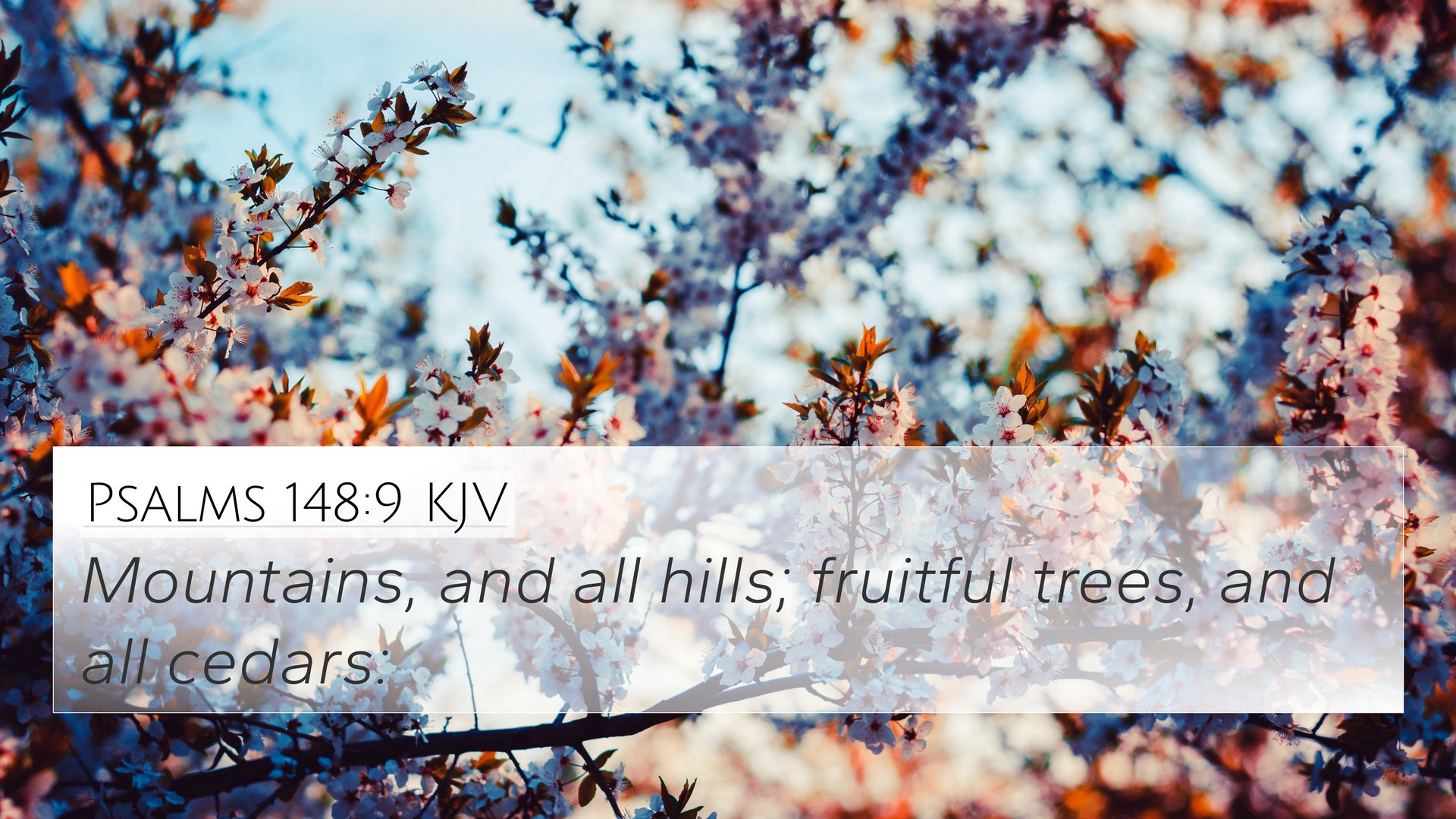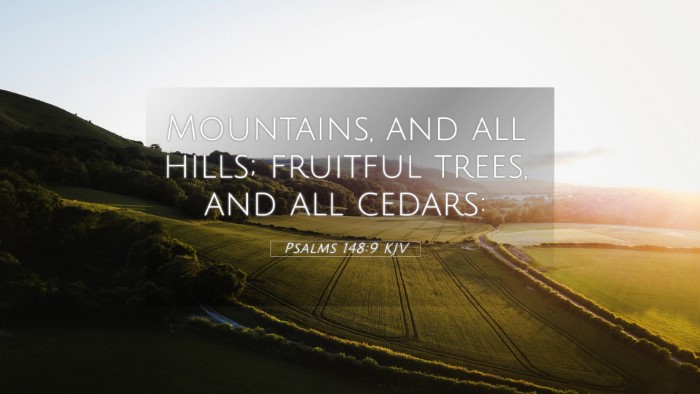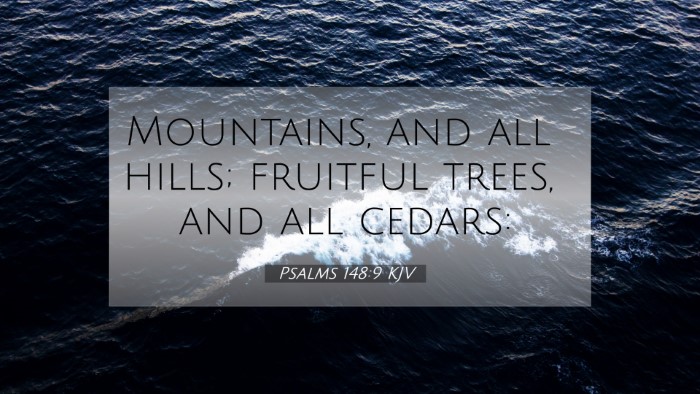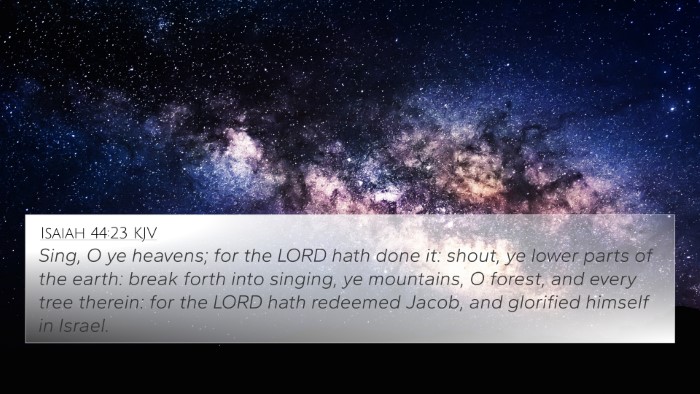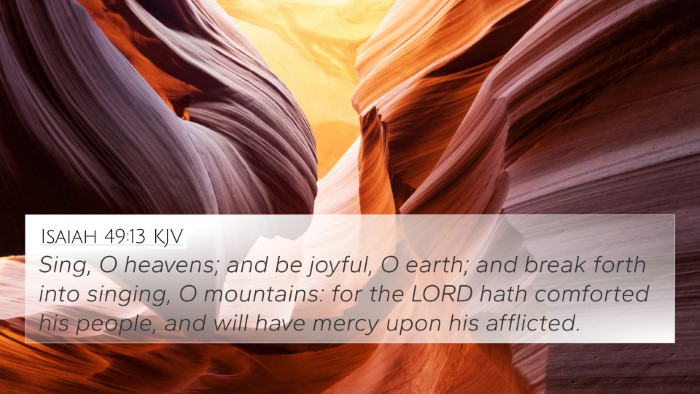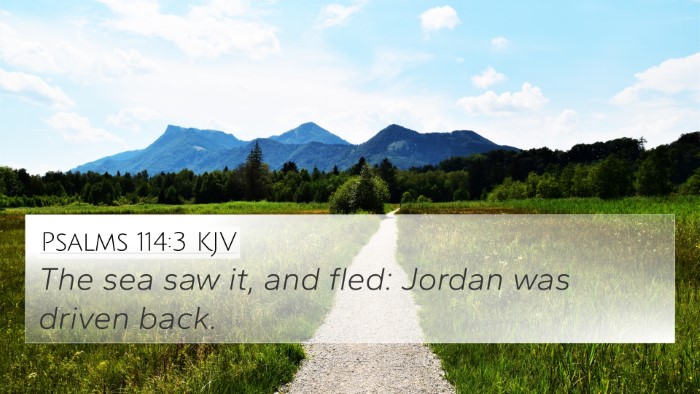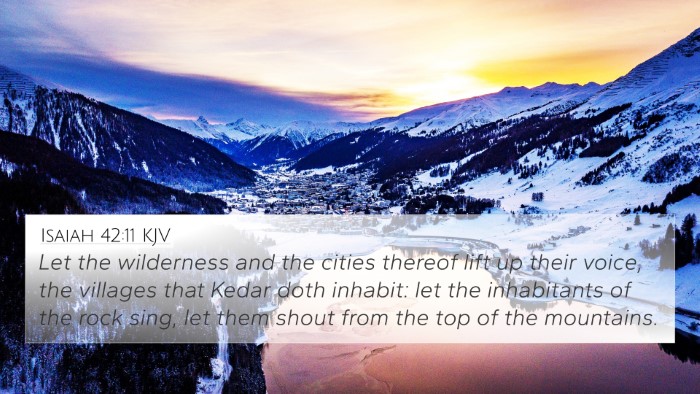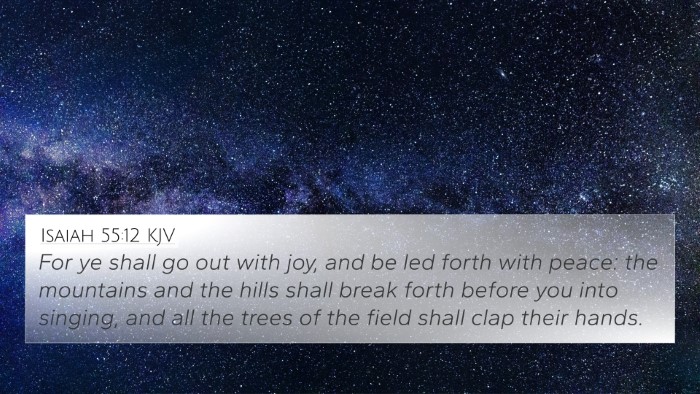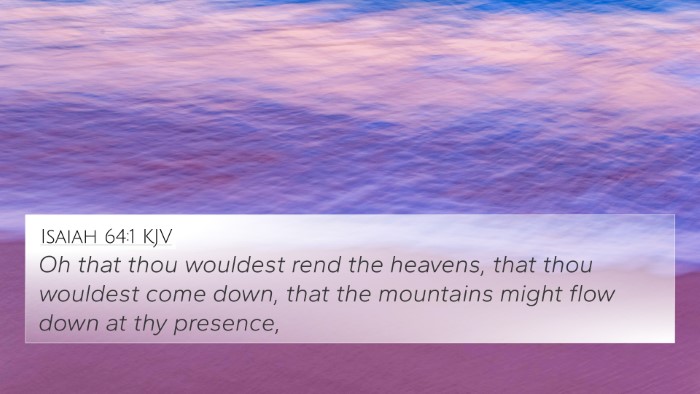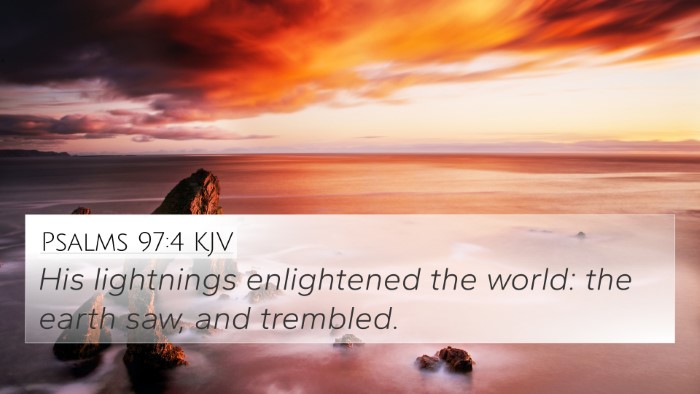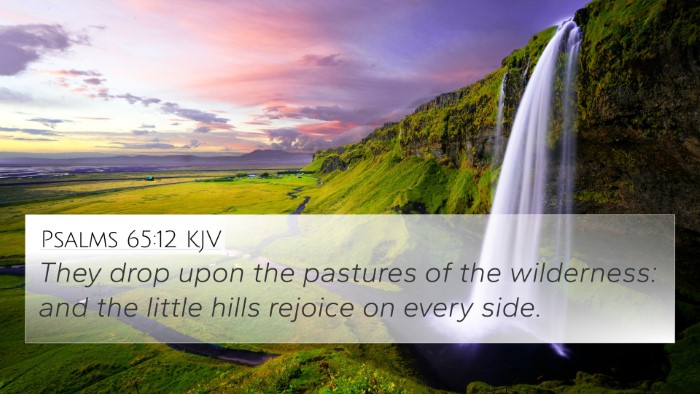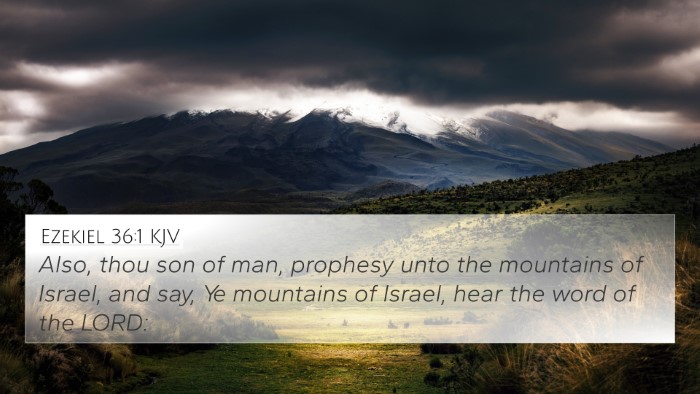Psalms 148:9 - Understanding the Verse
Bible Verse: Psalms 148:9 - "Mountains, and all hills; fruitful trees, and all cedars."
Summary of the Verse
This verse is a part of the overarching hymn in Psalms 148 that calls upon all creation to praise the Lord. Specifically, it mentions the mountains, hills, trees, and cedars, highlighting the diversity of God's creation and the universal call for everything created to acknowledge the Creator.
Commentary Insights
Matthew Henry's Commentary
Matthew Henry notes that this verse emphasizes the grandeur of the earth and the majesty of God's works. He interprets the mountains and hills as symbols of strength and stability, whereas the fruitful trees and cedars represent God's provision and splendor. In calling upon these elements of creation to praise, Henry suggests it signifies the complete range of God's creative power.
Albert Barnes' Commentary
Albert Barnes elaborates on the significance of each group mentioned in the verse. He points out that mountains and hills often symbolize immovability and permanence, while trees are indicative of life and sustenance. Barnes emphasizes the idea that all facets of creation, regardless of size or significance, are called to worship God, highlighting the theme of universal praise.
Adam Clarke's Commentary
Adam Clarke focuses on the anthropomorphic aspect of creation praising God. He addresses the idea that creation is not merely passive but actively participates in worship. Clarke suggests that this verse serves as a reminder of mankind’s connection to nature and the importance of acknowledging God’s creative authority in all things, encouraging humans to join in this cosmic chorus.
Bible Cross-References
For a deeper understanding of Psalms 148:9, here are some relevant cross-references that can provide additional insights:
- Genesis 1:11-12 - God creating vegetation, emphasizing His power over nature.
- Isaiah 55:12 - The mountains and hills breaking forth into singing, illustrating the theme of nature praising God.
- Psalm 96:11-12 - A call for creation to rejoice and praise the Lord.
- Psalm 104:16 - The cedars of Lebanon are referenced, illustrating God's providence and care for His creation.
- Job 38:4-7 - God's questioning of Job about the creation of the earth, highlighting the majesty of His work.
- Romans 1:20 - The visible creation manifesting God’s attributes, thereby calling for praise.
- Revelation 5:13 - Every creature in heaven and on earth giving glory to God, echoing the sentiments expressed in Psalms 148.
Thematic Bible Verse Connections
The connections drawn from this verse can guide your study and understanding of creation and worship in the Bible. Below are themes and related verses that enhance your comprehension:
- The Praise of Creation: Psalms 19:1 - "The heavens declare the glory of God."
- God’s Sovereignty over Nature: Job 26:7 - "He stretches out the north over empty space; He hangs the earth on nothing."
- Creation’s Response to God: Psalms 148:1-2 - Praise from high places, including angels and heavenly hosts.
Cross-Referencing Bible Study Methods
For those seeking deeper insights into scriptures and their interconnections, utilizing these methods can enhance your study:
- Bible Concordance: Use a concordance to find words and their occurrences throughout the Bible.
- Cross-Reference Guides: Refer to guides that provide scripture connections and explanations for shared themes.
- Study Groups: Engage in discussions with others to explore insights about how verses correlate with one another.
Identifying Connections
Understanding how to find cross-references in the Bible can enrich your study and sermon preparation:
- Identifying Themes: Look for common themes or phrases when comparing verses across different books.
- Pairing Verses: Explore pairs of verses that address similar subjects for comparative analysis.
- Cultural Context: Understanding the historical and cultural background can clarify connections between scripture passages.
Conclusion
In summary, Psalms 148:9 serves as a reminder of the grandeur of God's creation and the universal call for it to recognize and glorify Him. By utilizing the cross-references and insights from commentaries, one can appreciate the depth of meaning contained within this verse and explore its interconnections with other scriptures.
